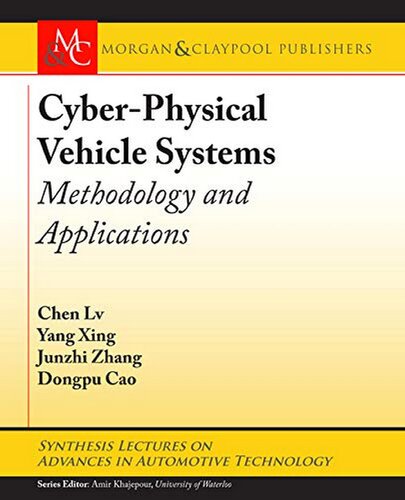

Most ebook files are in PDF format, so you can easily read them using various software such as Foxit Reader or directly on the Google Chrome browser.
Some ebook files are released by publishers in other formats such as .awz, .mobi, .epub, .fb2, etc. You may need to install specific software to read these formats on mobile/PC, such as Calibre.
Please read the tutorial at this link: https://ebookbell.com/faq
We offer FREE conversion to the popular formats you request; however, this may take some time. Therefore, right after payment, please email us, and we will try to provide the service as quickly as possible.
For some exceptional file formats or broken links (if any), please refrain from opening any disputes. Instead, email us first, and we will try to assist within a maximum of 6 hours.
EbookBell Team

4.3
8 reviewsThis book studies the design optimization, state estimation, and advanced control methods for cyber-physical vehicle systems (CPVS) and their applications in real-world automotive systems.
First, in Chapter 1, key challenges and state-of-the-art of vehicle design and control in the context of cyber-physical systems are introduced. In Chapter 2, a cyber-physical system (CPS) based framework is proposed for high-level co-design optimization of the plant and controller parameters for CPVS, in view of vehicle's dynamic performance, drivability, and energy along with different driving styles. System description, requirements, constraints, optimization objectives, and methodology are investigated. In Chapter 3, an Artificial-Neural-Network-based estimation method is studied for accurate state estimation of CPVS. In Chapter 4, a high-precision controller is designed for a safety-critical CPVS. The detailed control synthesis and experimental validation are presented. The application results presented throughout the book validate the feasibility and effectiveness of the proposed theoretical methods of design, estimation, control, and optimization for cyber physical vehicle systems.